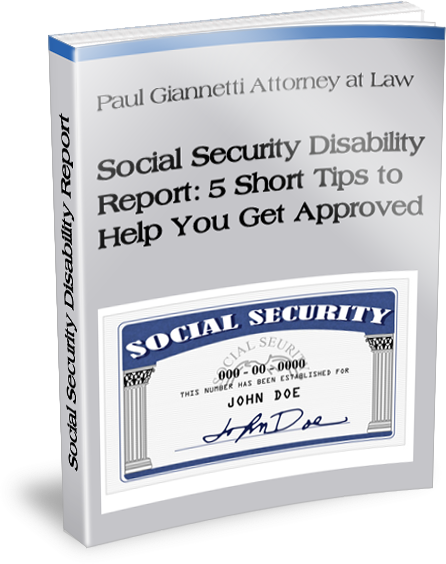Federal Law allows the Social Security Administration to recover overpayments made to claimants. When an overpayment has been alleged, the claimant may request a waiver. To successfully secure a waiver of overpayment, a claimant must show that he or she was without fault in creating the overpayment and that requiring repayment would contravene the purpose […]
Workers’ Compensation And “Jobs Express”
If you are partially disabled as a result of a work related injury, you have a legal obligation to remain attached to the labor market. This means that you must search for employment within your restrictions. The nature and extent of your job search will often determine whether or not you will continue to receive […]
Private Disability Insurance Reimbursement
In some cases a Social Security applicant is already receiving payments from a private disability policy. If they are denied Social Security benefits and request a hearing it can be many months before a ruling is made in their case. It is important to understand that some private disability policies include a reimbursement clause which […]
Medical Opinions In Social Security Cases
Social Security Judges are asked to consider many opinions when evaluating a claimant’s disability status. However, not all opinions are acceptable medical sources. Medical doctors or doctor of osteopathic medicine are acceptable medical sources. Psychologists, podiatrist, and optometrist are also acceptable medical sources. Other practitioners such as chiropractors, nurse practitioners, and physical therapists do not […]
“Working” For Social Security Purposes
One of the criteria to qualify for Social Security benefits is that a claimant be deemed disabled under Social Security’s rules. A person cannot be disabled if they are working regardless of their medical conditions. However, the Social Security Administration will consider someone is “working” if they earn $1,000.00 or more per month. A person […]
Permanent Total Disability In Low Back & Neck Cases
A finding of permanent total disability is extremely rare under the New York State Workers’ Compensation Law. Most claimants who suffer permanent disabilities in neck and back cases are classified as permanently partially disabled. The New York State Workers’ Compensation Board Medical Guidelines, last updated in June 1996, outline the criteria to be used in […]
Failed Work Attempts After Disability Claim
It is common for claimants waiting for their case to be heard at the hearing level to try to return to work. This is because, in most instances, claimants have no income and are struggling to survive. A return to work for a period of less than 3 months will not be counted against a […]
The Difference Between Schedule Loss Of Use And Temporary Partial Disability Percentages
Many New York State Workers’ Compensation claimants are confused by the distinction between a temporary disability rate and a schedule loss of use percentage. Before someone is found to have a permanent disability, they can receive lost wage payments so long as they are disabled. Those lost wage payments usually come in the form of […]
SSI And Savings Accounts
If you have been approved for SSI and have received checks for retroactive benefits you have nine months to spend those funds. After nine months, if you still have more than $2,000.00 in total assets as a single person or more than $3,000.00 if you are married, you will no longer receive SSI benefits until […]
No Exam, No Disability
Simply put, an insurance company is not liable to pay lost wage benefits unless evidence of disability, based upon a physical examination, exists. This means that a doctor cannot take a claimant out of work based on a phone call. Even if the doctor writes a note stating that person is disabled, it will not […]
